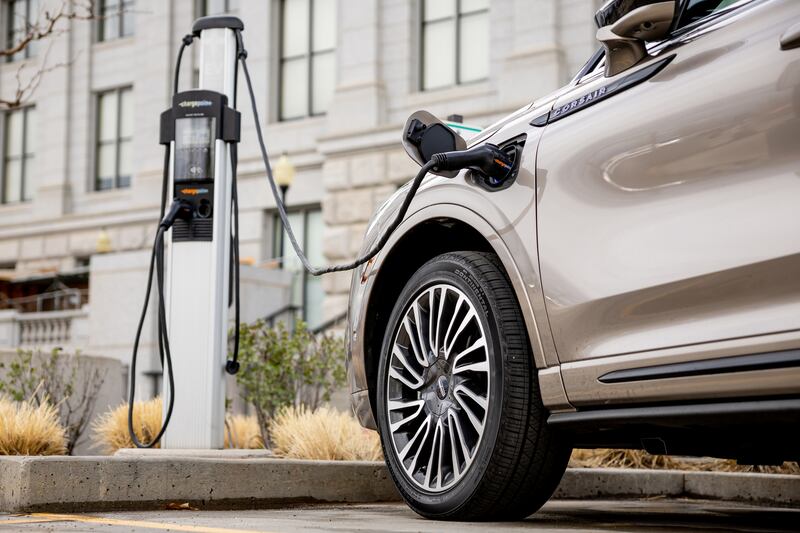After months of negotiation, Senate Democrats managed to pass the landmark Inflation Reduction Act on Sunday. Democrats have made big claims with the passing of the legislation, such as it will lower emissions by 40% by 2030, make energy more affordable and improve access to medication. Will the act hold up to these promises?
The green movement
To alleviate rising energy costs, the act offers incentives to upgrade homes with energy-efficient appliances and offers tax credits to make the process more affordable.
The act designates $9 billion in consumer home energy rebate programs for Americans to upgrade their old household appliances with newer energy-efficient items, specifically focused on low-income households.
It also aims to make solar panels, electric HVAC and water heaters more affordable through 10 years of consumer tax credits. It includes a $1 billion grant program “to make affordable housing more energy efficient.”
Electric vehicle tax credit
The act also includes tax credits to incentivize the adoption of electric vehicles. The U.S. Department of Energy states that new, all-electric and plug-in hybrid cars made after 2010 could be eligible for a tax credit of up to $7,500. Depending on income, some families can qualify for $4,000 in tax credits to buy used “clean vehicles.”
A domestic approach to climate and inflation
The act can be thought of as a two-part ordeal, with emphasis on climate change and inflation. In an attempt to soften the blow of both, this bill focuses on domestic energy production, community investment and help for farmers and those in rural communities.
Over $60 billion will go to domestic on-shore clean energy manufacturing. Tax credits will also be made available to speed up the production of solar panels, wind turbines and other renewable energy sources in the U.S. Money will be allocated for research and grants to revamp existing renewable energy facilities.
Approximately $75 billion will be invested in “decarbonizing” the economy, offering funds and tax rates that focus more on electric vehicles and cleaner alternatives for commercial vehicles and public transportation.
The bill will send over $20 billion to “climate-smart agriculture practices.” This, a summary of the act says, will “ensure that rural communities are at the forefront of climate solutions.” Rural communities will also be provided with funds to support their natural ecosystems with tree planting programs and coastal conservation projects, the bill claims.
Bartering powers for Medicare
The legislation will extend the Affordable Care Act through 2025 and allow the social insurance program to bargain for lower prices for prescription drugs. The bill sets a $2,000 out-of-pocket spending cap and lowers premiums for the 13 million Americans who are insured through the Affordable Care Act, which lawmakers predict will save customers $800 annually.
Increase in corporate taxes
Funding for the bill could go under review, but the president has said that large corporations will have to pay a 15% corporate minimum tax with the passing of this legislation. However, this bill won’t increase taxes on small businesses or add new taxes for households that make under $400,000 annually.
Will it actually reduce inflation?
The answer is yes, but not right away. Economists say the effects of this act won’t be felt immediately, given the time it takes for policies to go into effect.
“Very little (effect will be felt) in the next six months,” Marc Goldwein, senior policy director for the Committee for a Responsible Federal Budget, told Vox. “For the most part, this isn’t a bill about 2022. This is a bill about 2023, 2024, 2025. It’s about helping the Federal Reserve to fight against persistent inflation. It’s not gonna be bringing down the inflation rate in the month of September.”
Goldwein states that the bill’s focus is on the Federal Reserve. While it may not take weight off of the average American’s pocket right away, the Inflation Reduction Act, in the long run, could produce “historic results,” Sen. Richard Blumenthal, D-Conn., said in an interview with CNN.

